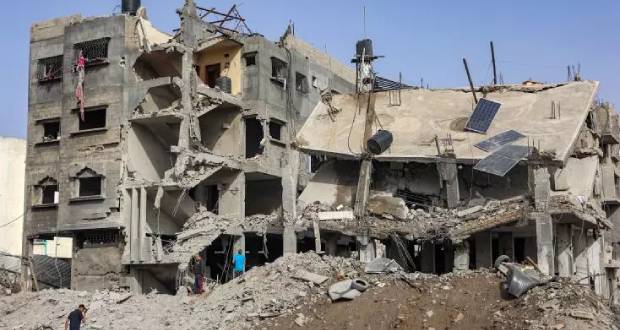Publicité
Safe food for all…

The recurring food poisoning press reports have awakened public concern about the safety of food supply. Consumption of unsafe food can result in severe adverse health effects, hospitalisation and death. Food safety is a significant issue which needs to be taken seriously.
The Mauritius Food Act 1998 stipulates that “any person who imports, prepares, supplies, distributes or sells any food which is poisonous, harmful or injurious to health…shall commit an offence”. Food business operators throughout the food chain have the moral and legal responsibility to ensure food safety. Good Agricultural Practices (GAP) on farms are required to minimise pesticide residue levels in crops. Good Hygienic Practices (GHP) on animal farms/slaughterhouses and fishing boats contribute to keep bacteria in raw meat and fish to low numbers. The continued application of food hygiene principles by food handlers involved in processing, storage, distribution and sale of food is critical to provide safe food to the consumer who is the final link in the food chain. Consumers have the responsibility to adopt good food safety behaviour when purchasing and handling food to draw the final line of defense against food poisoning bacteria. Food handlers from farm/sea to the consumer’s palate need to work together to achieve food safety to prevent human suffering and protect human life.
Food poisoning can be prevented
Food hygiene focuses on the implementation of preventive measures to control food safety hazards which include food poisoning bacteria, pesticide residues, natural toxicants and physical contaminants such as glass, stones and bones. Food poisoning bacteria may arise in food through contamination from primary sources namely: soil dust human hair, skin, nose and throat intestinal tract of humans, animals and birds. Basic food hygiene is concerned with preventing contamination by food handlers, equipment and the environment. The measures are generic since they address common factors that affect food safety which are relevant to any segment of the food chain. They include personal hygiene, equipment hygiene, cleaning, pest control, waste control, supplier control, time and temperature control. These food hygiene components are also referred to as Pre-Requisite Programmes (PRPs) which establish the necessary foundation for the development of specific food safety management systems based on the Hazard Analysis Critical Control Point (HACCP) principles. The food safety hazards associated with a production process depends on the raw materials, processing conditions and product characteristics. For example, food poisoning bacteria likely to be present in raw vegetables include bacteria that are found in soil which is the primary source for significant pathogens. Implementation of HACCP aims at achieving a high level of food safety management by controlling food safety hazards which are process-product specific, and applying deeper control to process steps which are critical for food safety.
Food safety management systems need to be sustainable
The risk of bacterial food poisoning can be mitigated by preventing “Contamination” and ensuring adequate “Cleaning”, “Cooking”, “Chilling” of food, known as the “4Cs”. Current food safety management systems lay emphasis on the implementation of a preventive approach supported by measurement, inspection and testing to verify effectiveness of practices and provide evidence of conformance to food safety requirements. Preventing food safety hazards from arising in food sold to the consumer is more cost-effective than limiting control to testing the final product to detect, recall and destroy unsafe food. The favoured approach is preventive rather than reactive since disposition of contaminated food results in wastage and increased costs. Food safety management activities require inputs and relate to the environment. For example discharge of food production wastes needs to be controlled to prevent environmental pollution and contamination of the food chain. It is therefore increasingly important for food businesses to manage food safety by making judicious use of resources and protecting the environment to enhance efficiency as well as sustainability of food hygiene systems.
Poor food hygiene is bad for businesses and food security
Poor hygiene increases the risk of food safety incidents. Food business reputation, survival and competitiveness suffer significantly from supplying unsafe food to the consumer. In Mauritius, the current Food Hygiene Regulations require implementation of basic food hygiene in food production but the HACCP system is not mandatory. In Europe, the European Community Food Hygiene Regulations require the application of HACCP principles by food business operators. The international trading environment recognises the Codex Alimentarius, including general principles of food hygiene and HACCP guidelines, as consistent with the provisions of the agreement on Sanitary and Phytosanitary (SPS) measures.
Thus, evidence of compliance with food hygiene and HACCP requirements contributes to enhance export potential of local food businesses and facilitates international trade. However, small food companies might not have the necessary resources to initiate comprehensive food safety management systems. Appropriate measures are required to support these businesses in working towards fulfilling high food safety standards since “safe food means better business”.
Food safety makes business sense and is also linked to food security. The Food and Agricultural Organisation has defined food security as: “A situation that exists when all people, at all times have physical, social and economic access to sufficient, safe and nutritious food that meets their dietary needs and food preferences for an active and healthy life”. This definition integrates the food safety concept. Efforts invested to increase production and supply of safe food at affordable prices are relevant to actions to enhance food security.
Food safety problems signal system failure
Achieving food safety is a shared responsibility among food businesses and the other building blocks of the national food control system concerned with enforcement of food law. The incidence of food poisoning is a valid indicator of the effectiveness of national food control systems in protecting consumer health and life. The recent food poisoning press reports in Mauritius signal system failure and draw attention to the need to review food control activities in the light of identified root causes of observed food safety problems.
The most reported microbiological food safety hazard in Mauritius is Salmonella bacteria. Primary sources of Salmonella bacteria include intestinal tract of humans, animals and birds. Salmonella can be transmitted to humans by eating foods contaminated with faeces. Salmonellosis is a major problem in many countries but can be effectively controlled by the following measures: good hygiene practices in slaughterhouses, milk and crop production thorough cooking of eggs and meat adequate milk pasteurisation fly control hand-washing and personal hygiene. Which Salmonella species were identified? What about other food poisoning bacteria such as Campylobacter which is the most reported cause of bacterial food poisoning in some countries, and Listeria which causes a disease that primarily affects the elderly, pregnant women, newborns and immuno-compromised individuals? Not reported does not mean not prevalent!
Proposed actions for the way forward
Scientific data on the occurrence of food poisoning bacteria and chemical contaminants in the food chain in Mauritius is inadequate. There is a need to develop laboratory services to continually monitor levels of potential food safety hazards. This is necessary to provide a sound basis for valid risk assessment to identify significant food safety hazards that must be controlled by national food law and HACCP systems of food businesses. Collected information on food safety hazards should be communicated in a transparent manner to add value to food safety management systems. The effectiveness of HACCP in preventing food poisoning is determined by its ability to target food poisoning bacteria that are relevant to a specific production context.
A key factor which contributes to the success of food control activities is the commitment, integrity and competence of people involved in the national food control system. Education and training contribute to overcome the knowledge and attitude barriers to good food safety practices. Food safety education should start in early childhood at home and be further developed at school to shape consumers’ behaviour towards making safe food choices and hygienic food handling in the domestic kitchen. In some countries, a significant number of food poisoning cases originate from microbiological contamination during food preparation at home. In the United Kingdom, Local Authorities (LAs) provide consumer food safety education through national hygiene initiatives to promote good practices. In Singapore, the Agri-Food and Veterinary Authority (AVA) is responsible for ensuring food safety and is actively engaged in food safety education. Ongoing training of inspectors and food handlers is essential to maintain motivation and strengthen skills required to ensure supply of safe food all the time. Interactive communication among national authorities, food businesses, scientists and consumers enables continual improvement of food control activities to build a dynamic national food control system.
There is a need for collective effort to enhance the effectiveness of the national food control system in Mauritius. National food control commitment, strategy and actions should prioritise on setting up a national body that would take the lead in food safety education and monitoring, and ensure effective management of food control activities by putting consumer food safety first.
Badroonesha Aumjaud
Lecturer
Faculty of Agriculture
The University of Mauritius
Publicité
Les plus récents






